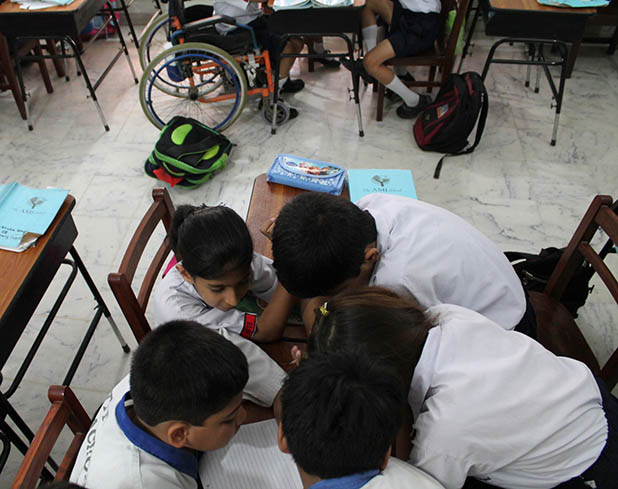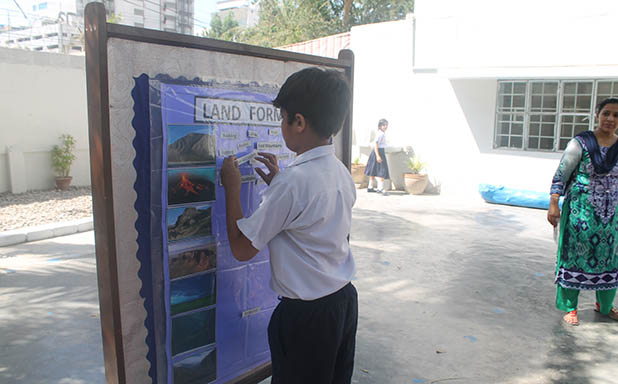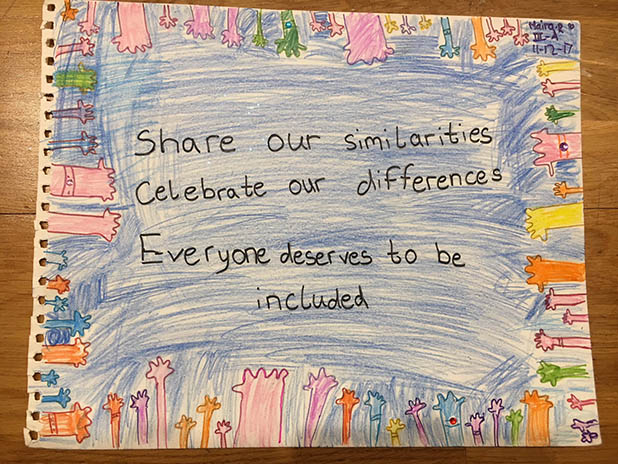A three-year project using Occupational Therapy to improve education for students with special needs in Pakistani classes has shown significant teaching and learning improvements for all children involved.
Using funding from the British Council and the Higher Education Commission of Pakistan, occupational therapists (OTs) and teachers worked together in three schools to develop strategies that enable children with special needs to study, play and socialise with their classmates.
Multisensory and interactive teaching for the whole class are among the approaches proven to work by the researchers from the UK's Brunel University London, together with Pakistan's Dow University of Health Sciences Karachi and The AMI School. Examples of these appear as case studies in their new Resource Guide for teachers and OTs.
This work is especially important because the majority of children with disabilities and other special needs in Pakistan are still missing out on being in school at all.
"Given Pakistan's large population of young people, there are 7 million children missing out on education," said project lead Dr Debbie Kramer-Roy, Lecturer in Occupational Therapy at Brunel University London, "and many of those with special needs who are enrolled in school don't receive the support they need to be able to participate in educational and social activities like their classmates."

The Inclusive Education approach to Occupational Therapy moves away from the traditional focus on the individual child with special needs. Instead of taking a child away from the classroom for separate support, an OT – or other allied health professionals such as psychologists and speech therapists – now works with the class teacher to redesign inclusive lesson plans that help the child to be included in the same lessons and activities as their peers, reducing perceived differences. As a result, more children receive support, and fewer children require one-to-one intervention.
"There was a child who just could not memorise some geography facts," said Dr Kramer-Roy. "The teacher and the OT observed, reflected and planned together, redesigning the whole lesson plan to be as inclusive as possible, keeping in mind the needs of the child. They then did things that were much more interactive: pictures and word cards that could be matched, and which each class member took up to the board for the exercise. The teacher observed that all children learned the content better, and did better in their test.
"A lot of the improvements are about good, solid, activity-based teaching – designed with the child with special needs in mind, but importantly for the whole class."

Whether the child has learning difficulties, emotional or other difficulties, there are always methods for using the child's strengths.
These new approaches to school-based Occupational Therapy have been researched in some other countries, including Canada’s Partnering for Change and more recently the UK, and are endorsed by the World Federation of Occupational Therapists. So Inclusive Education’s early introduction to Pakistan is radical and forward-thinking, and demonstrates great potential for the country and its South and Central Asian neighbours.
"Our Resource Guide is practical and inspirational, yet doesn't give recipes for schools to follow," explained Dr Kramer-Roy. "Teachers can see the development process and problem-solving approach, and through case studies see examples of what has already been proven to work. They can then gain confidence and design learning activities around the particular needs of the children with special needs in their own schools.
"The aim is to maximise each child's potential, and we have shown that with the investment of knowledge, OT expertise and a little time, teachers in Pakistan can enhance their curriculum's accessibility and effectiveness."

Findings from this project were shared on 28 June at a dissemination event at Brunel University London’s campus in Uxbridge.
Find out more about Occupational Therapy at Brunel.
Reported by:
Joe Buchanunn,
Media Relations
+44 (0)1895 268821
joe.buchanunn@brunel.ac.uk